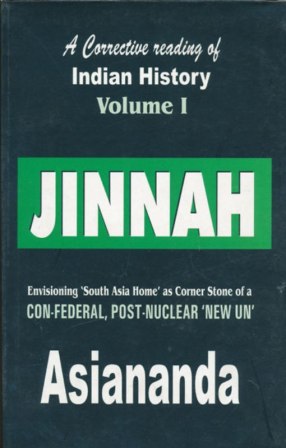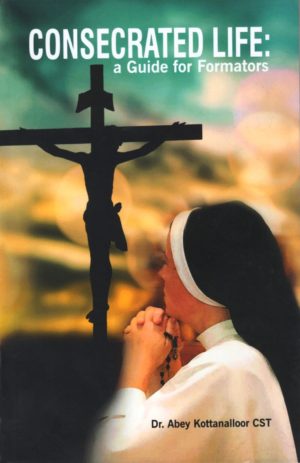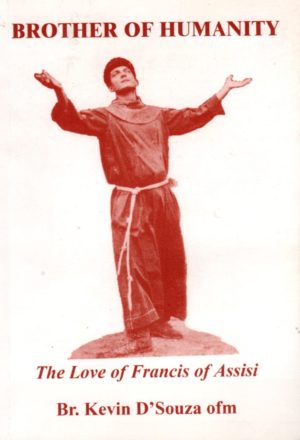Description
I have glanced through your book Jinnah – A Corrective Reading of Indian History. I am afraid I could not go through the entire book owing to my preoccupation with the ongoing budget session of the Parliament.
However, after having read snatches of it, I found the book very interesting and thought-provoking. The book has expounded a new theory with reference to the Indian freedom struggle. Though experts may have differing view about the conclusions you arrived at, I personally feel that the book provides new perspective.
I agree with the opinion expressed by you about the Action Plan initiated by our great leader and former Prime Minister Late Rajiv Gandhi. His vision of world peace and nuclear disarmament is still relevant. I corroborate with the opinion expressed in the book that the Indian subcontinent will emerge as a force to reckon with and play a major role in world politics. Your book comes at an opportune moment when India and Pakistan are negotiating peace and cooperation.
Dated: 28. February 2005 Place: New Delhi.
(Pranab Mukherjee)
Inter Press Service
“There is no dearth of celebrated books dealing with the events that led up to the traumatic 1947 partition of the Indian sub-continent such as ‘Freedom at Midnight’ by Dominic Lapierrre and Larry Collins or even ‘Midnight’s Children’ by Salman Rushdie. Asiananda… may not match the literary genius of a Rushdie but his book has a mission — to correct the image of Mohammed Ali Jinnah as the man widely held responsible for tearing asunder an entire civilization — and it has had remarkable success in achieving its plainly stated aim… If a single book can ever lay claim to having positively changed the tortuous course of Indo-Pakistan relations it would be the tome ‘Jinnah – A Corrective Reading of Indian History’ by Prof Asiananda”
Ranjit Davraj
The Hindu
“Mr. Aiyar said the two countries would not be able to be at peace with each other as long as Jinnah and Mahatma Gandhi continued to be demonized in India and Pakistan respectively. “Both were great leaders,” he said, congratulating Prof. Asiananda for ‘touching a topic many of us would not have dared to touch in India”. Hon’ble Mani Shankar Aiyar, as reported in The Hindu, 15 Apr 05
The Telegraph Calcutta/London
“.. .But his dissertation on Jinnah, whom he considers a decent fellow who was driven to distraction by “personality differences” with an unbending Gandhi, definitely deserves wider discussion in India.”
Amit Roy, London
Rashtirya Sahara
“For the mainstram India, Jinnah is the villain of partition. While accepting this truth, the book forcefully brings alive the Jinna of the first six decades of his life – a Jinnah who was not separatist, but secular nationalistic patriotic, who would gladly have uttered after the classical Roman ‘Civis Indica sum’…. Many hitherto less know facts and novel arguments have been presented by Dr Asiananda in an extremely lucid and evocative style.”
Dr Ved Pratap Vaidik
Dr. Abhishek M Singhvi (Spokesperson, AICC) “The overall get up of the book, your obvious commitment to diligent research and the originality of your thesis, are all deadly cocktail for certain success of the book. No conflict can be permanent and the contemporary winds of change, which are blowing over the subcontinent, are harbingers of a better and brighter future. I am certain that this book is bound to help breaking down the walls of prejudices in the hearts and minds of the people and in providing a rational reconciliation for the open minded and unbiased reader”.
Dr. Abhishek M Singhvi
Contents
Foreword by The Hon’ble Dr L M Singhvi
Preface to the Third (Public) Edition
Towards Transformative New Global Order
The Inner Order That Holds All
Redefining NPT – Let’s Dismantle the Apartheid
Covenant of the Mandala – ‘Con-federal New UN’ xiv
On Book’s Gandhian Critique
Preface to the Second Private Edition
Chancellor’s Foreword
Preface to the First Private Edition
Executive Summary 20
Why was India Partitioned?
Indo-Islam, Khilafat and Pakistan
Transformative Historicism
Volume II – Synoptic Perspective Gandhi: A Corrective Reading of Indian History
Part I
Defining the Theoretical Superstructure and Substructure
1. The South Asian Commonwealth – The Twenty-first
Century Subcontinental and Global Agenda
Beyond the Nation-State
South Asian Glasnost is Here and Now
Revising the Persisting Cold War Status Quo
Second Manhattan Project – Second India Gate Project
Rajiv Gandhi Action Plan and Human Future
My Pledge to Prime Minister Rajiv Gandhi
Jinnah – A Corrective Reading of Indian History
What Proved Congress Wrong, and Jinnah Right? Two Geopolitical Preconditions of Kashmir Settlement
and Indo-Pak Reconciliation
The Book in Nutshell
Why the Corrective Reading of Indian History?
From ‘Clash of Civilizations’ to the ‘Confluencing Planetary Soul’
Mandela, Gorbachev, Bill Clinton, Rajiv Gandhi
2. Human Unity or Geopolitical Apartheid – On the Deadlock
of Partitioned & Nuclerized Civilizational Personalities
From Samuel Huntington to Global Reconciliation
Status Quo – Revisionist Dialectics
Asian Scene of World War III
Breaking the Gordian Knot of Geopolitical Apartheid
The Self-affirmed (nuclearized) Geopolitical Actors
The Nuclear Club and Veto Rights
Partitioned Civilizational Families
Healing and Global Reconciliation
Was Partition the Deliberate British Act?
Con-federational New United Nations
Surmounting the Last World Historical Conflict
3. The Raj, Paramountcy & King-Emperor –
An Exploration into the Soul-level Confluence of Civilizations
Human Unity is Today an Accomplished Fact
Surface Clash and Deeper Confluence of Civilizations
Civilization is the Process of Human Liberation 109 The Mutually Attracting Abrahamic and Vedic
Civilizational Archetypes
The Real Meaning of Indo-British Civilizational Encounter
Laying the Corner Stone of South Asian Home
Britain and India – The Soul-level Covenant
India Gate – The Project Human Liberation
The Covenantal Delhi Durbars
he Camelot, New Delhi, New Jerusalem
Nineteenth Century Confluence – Soul of Britain
Nineteenth Century Confluence – The Indie Soul
Non-Cooperation – Unmaking of the Indie Soul
Escalating Battle Lines of Gandhi-Jinnah Feud
Was Non-cooperation Worth the Salt?
The Unfinished India Gate
Towards the Second India Gate
Part II Resolving the Deadlock Transcending the Nationality Conflict that was a Personality Conflict
4. Two Great Congressmen: Revisiting the Negated
Gandhi-Jinnah-Raj Legacy
Pre-Gandhian Congress Politics in Nutshell Liberating Civilization, Western Man from Collective Guilt
Hind Swaraj – Is Civilisation a Disease?
Is British Parliament ‘Prostitute’? Pathology of an Arrested Puberty 174 Individuated Personality Response – British View
of Indian Civilization
From Hind Swaraj to Pax Indica
Way Forward
5 The Making of M K Gandhi & MA Jinnah:
Cooperation versus Non-Cooperation
The London Worlds of M K Gandhi and M A Jinnah
An Indepth Look in the Gandhian Psyche
Jinnah – Falling in Love with London
Jinnah – Self-perception of a Nominal-Muslim Indian
The Bombay Career Worlds of M K Gandhi and M A Jinnah
Gandhi – The South African Phase
The Fated Train Journey – An Avoidable Accident
Two Decades of South African Struggle
The Authoritarian Spiritual Personality
The Untold South African Story
Gandhi – Epitome of Conflict, Resistance, Non-Cooperation
From South Africa to India
The Indian Nation Jinnah Envisioned
Dimensions of Gandhi-Jinnah Compensation Needs
A Quintessential Indian and a Quintessential Hindu
Countervailing Civilization’s Death Wish – Gandhian
Truth or Dharmic Truth?
6. Quo Vadis 1920? – Lucknow Pact? or Khilafat?
Retracing the Hindu-Right (Hindutva), Neo-Hindu (Bharatiyata),
Pacific-Hindu (Hind Swaraj), Paths to Freedom Struggle
Savarkar – From Armed Rebellion to Hindutva
Savarkar, Mahratta-Chitpavan Soul, Hindu Custodianship
The Chitpavans in Mahratta History
Savarkar in London
Towards a Savarkar Critique and Evaluation
Lucknow Pact Option 1920 – Tracing the Neo-Hindu Path
of Bharatiyata to 1947
Lucknow Pact and the New Congress Leadership
The Neo-Hindu, Theosophical Beginning of Indian
National Congress
1920 – The Theosophical Neo-Hindu Alternative to Hind Swaraj
The Khilafat – Non-cooperation Path
A Gandhian Critique and Assessment
A Corrective Reading of Indian History
New Delhi – The Gnostic Theosophical Memorial
India Gate – The Omega Point of History’s Convergence
7. Freedom Struggle – An Assessment
Non-Cooperation would have delayed Freedom by Decades
Freedom Struggle – A Balance Sheet
Satyagraha and Hindu-Muslim Unity – A Reassessment
Matricide – Sinning against Humanity
Partition was Phenomenologically Inevitable
Many-Nations, the Quintessential Indie Identity 2
8. Gnostic World Order of the Second India Gate The Timeless India
India Gate Stands for Converging Civilizational Souls/Homes
India’s Revisionist Challenge – The Triumph of Spirit 291 After Liberty and Equality Now Fraternity
– The Gnostic India Gate
Second India Gate or India2047
Part III
The Vedico-Quantum New Conception of History Theory of ‘Confluence of Civilizations’
9. Skamba, Self the New Man – Grounding
the Vedico-Quantum New Historical Conception
Purusha, the Inner Order precedent to Big Bang
India Gate is the Earthly Symbol of Skamba, New Man
Skamba – The Theory of Civilizational Convergence 310 From Baser ‘Animality’ to Humanity and Divinity –
The Process of Historical Transcendence
Endurance of Collective Civilizational Visions
Teleological Vision
Committing Geopolitics to the Teleological Goal
10. Ruling Historical Conceptions
Cyclical View
Linear View
The Jewish View
Secular Varieties
Islamic View
Spherical View
Towards the Integralist or the Post-materialist Synthesis
11. The Integralist Conception of History
The Integralist Centrality of Person
The Integralist World Order
The Integralist Civilizational Confluence
The Integralist is Individuation and Wholeness
From Clash of Civilizations to Confluence and Commonwealth
Part IV
Trans-vedic Megacycle of Indian History Laying the Foundations of the Post-materialist Planetary Order
12. Pax Indica of Spirit – Its Unfolding Planetary Megacycle
Laying the Foundations of the Post-Materialist Planetary Order
Pax as Succession of Peace Orders in History
Pax Indica – Its Historical Mould
Pax Indica – Cosmological Conception
Pax Indica – The Post-vedic Megacycle
Pax Indica – The Pre-vedic Megacycle
Methodological Frontiers – Transformative Historicism
13. Theoretical Foundations of Post-Material Planetary Order
Megacyclical Interpretation of Indian History
1996 – Whither India? Whither Human Future??
Civilizational Counter Cycles
Redefining Indian History
Nuclear Subcontinent
Healing the Subcontinent
Skamba the Omega Point
14. Skamba – The Quantum Centre of Human Unity
The Indie, Bedrock of Human Unity
Skamba the Unseen Quanta of Human Unity Confluence of Prevedic and Postvedic Megacycles
Bharatiyata the Higher Truth
India Gate – Confluence of Indraprastha and Shahjehanabad
15. Geopolitical Foundations of the Post-Materialist Paramount Order
The Pax Americana of Hope 368
Chester Bowles and Pax Americana of Hope from New Delhi
JFK and the New Frontier – Its Tryst with the Indie
Kennedy and the Pax Indica of the Spirit
Pax Indica of the Spirit and Pax Americana of Hope
Towards the South Asian Glasnost
The Pending Historical Tasks in the Subcontinent
Punjabiyat, Bengaliyat, Kashmiriyat: Comer Stones of S. Asian Home 378 Civis Indica Sum 379
PartV
Regaining the Subcontinental Paramountcy and Coming Out of Kashmir, Ayodhya Stalemates
16. Situating Jinnah, Partition and South Asian Islam in
Indian History
Identity Crisis of Divided South Asian Islam
Islam in Hindustan – Paramount Power; Composite Civilization 389 Indian Islamic Identity – Between Re-conversion and Reconciliation 391
The Wise Old Woman Shows the Way Out 17. Archetypal Core of Indo-Islamic Civilizational Integration 395
Beyond Kashmir as ‘Core Issue’
The Constitutional Status of South Asian Islam
Why a Paramount Successor to the Raj Failed to Emerge?
18. Coming Out of Kashmir and Ayodhya Deadlocks
We Must Face the Truth 404
Closing on the Warps and Woofs
Coming Out of the Kashmir, Ayodhya Deadlocks
In Conclusion – A Personal Confession
Postscript
Towards ‘Second India Gate’ Project
Letter to the Prime Minister of India, Proposing Ad Hoc Committee 422
Gandhi: A Corrective Reading of Indian History
Contents of Volume II
Index




Reviews
There are no reviews yet.